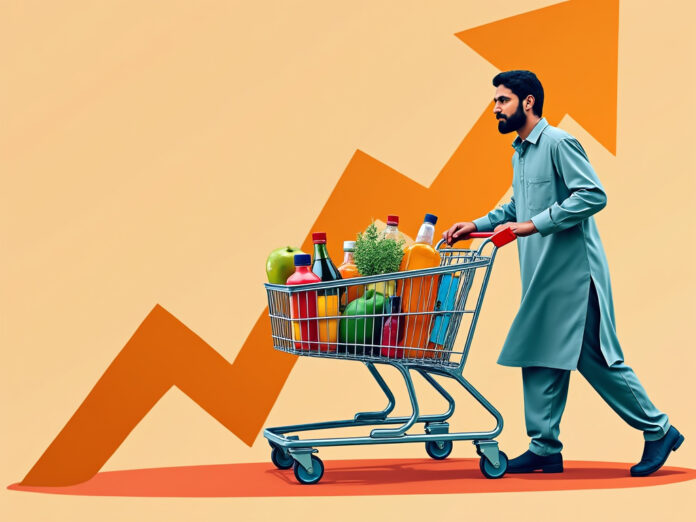Pakistan’s Consumer Price Index (CPI) for September 2025 is expected to rise to 6.5%–7% on a year-on-year (YoY) basis, primarily driven by the surge in food prices due to supply-side disruptions caused by the ongoing floods in the country, Topline Securities said in its latest report.
This marks a jump from 3.0% in August 2025 and 6.93% in September 2024. On a month-on-month (MoM) basis, inflation is projected to climb by 3.1%, the highest increase in 26 months.
The YoY inflation in September 2025 is expected to be the highest in the past 11 months, while the 3.1% MoM rise is mainly attributed to a sharp 8.75% increase in food prices, marking an all-time high for monthly food inflation.
Among the key contributors to the rise in inflation, tomatoes saw a dramatic 122% increase, wheat prices surged by 49%, and wheat flour prices rose by 39%. Other food items such as onions (+35%), potatoes (+5.4%), rice (+4.3%), chicken (+4.1%), eggs (+3.5%), and sugar (+2.7%) also contributed to the overall inflation increase.
On the other hand, fruits are expected to remain flat, and vegetable prices are projected to decrease by approximately 10% MoM.
The housing, water, electricity, and gas category is expected to experience a 0.24% MoM decline, mainly due to a 2.19% drop in electricity charges resulting from the Quarterly Tariff Adjustment (QTA) and Fuel Charges Adjustment (FCA) for August–October. However, this reduction in electricity prices was partially offset by a 2.75% rise in Liquefied Petroleum Gas (LPG) prices.
The transport sector is expected to fall by 1.25% MoM, driven by a 2.7% drop in motor fuel prices, including a 5.3% decrease in high-speed diesel (HSD) prices, while petrol remained unchanged.
With inflation for September 2025 projected to be between 6.5%–7.0%, real interest rates are expected to surge to 400–450 basis points (bps), well above Pakistan’s historical average of 200–300 bps.
According to the brokerage firm, a key risk to the inflation outlook is the potential for significant shifts in global commodity prices, which could impact inflation in the coming months.




